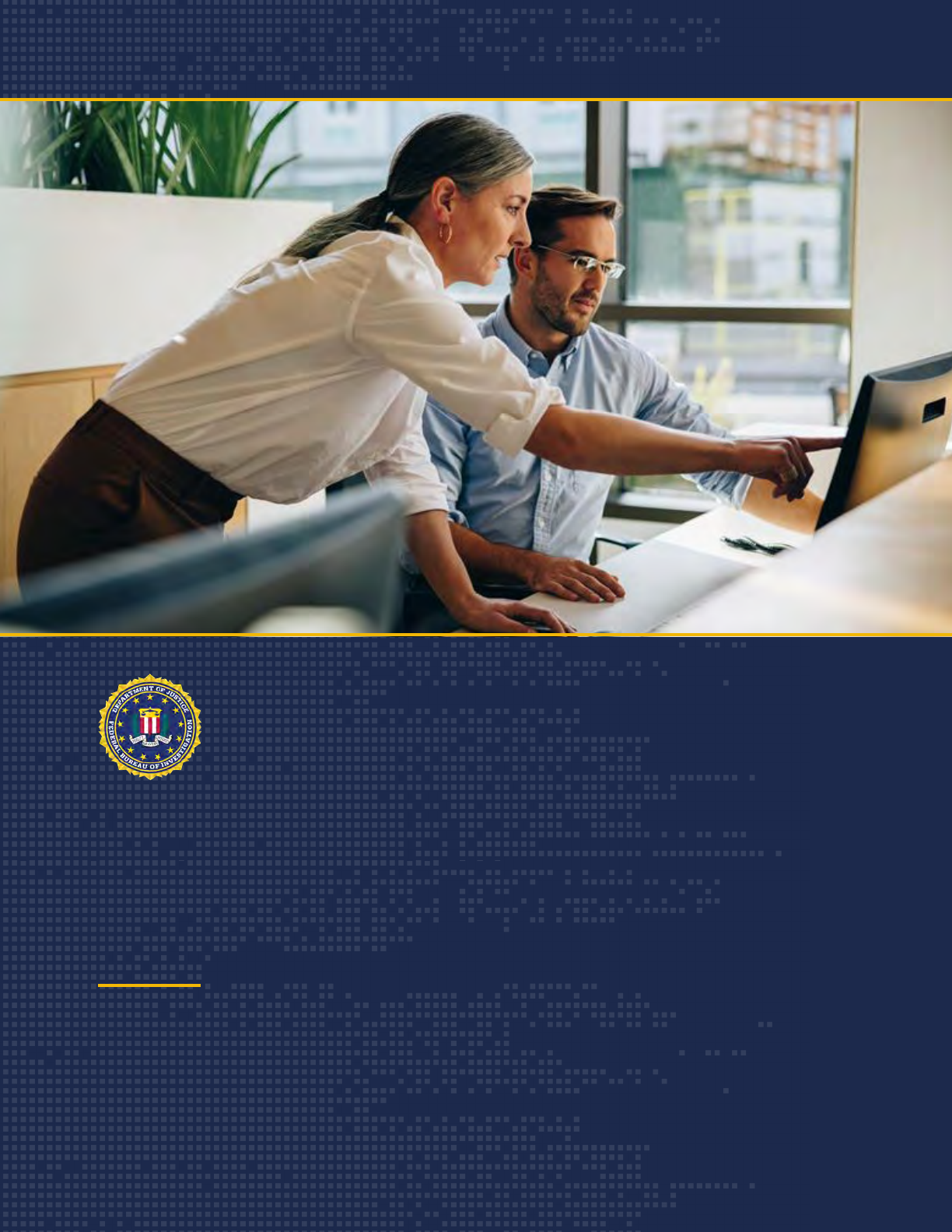
CANDIDATE
INFORMATION
Intelligence Analyst Selection Process
The FBI is an equal opportunity employer.
Last revised April 2024.

MISSION.
PRIORITIES.
VALUES.
The mission of the Federal Bureau of Investigation
(FBI) is to protect the American people and uphold
the Constitution of the United States.
The priorities of the FBI are to:
• Protect the United States from terrorist attacks.
• Protect the United States against foreign.
intelligence operations and espionage.
• Protect the United States against cyberattacks and
high-tech crimes.
• Combat public corruption at all levels.
• Protect civil rights.
• Combat transnational/national criminal organizations
and enterprises.
• Combat major white-collar crime.
• Combat signicant violent crime.
The core values of the FBI are:
• Rigorous obedience to the Constitution of the United States.
• Respect for the dignity of all those we protect.
• Compassion.
• Fairness.
• Uncompromising personal and institutional integrity.
• Accountability by accepting responsibility for our actions and
decisions, and the consequences of our actions and decisions.
• Leadership, both personal and professional.
• Diversity.
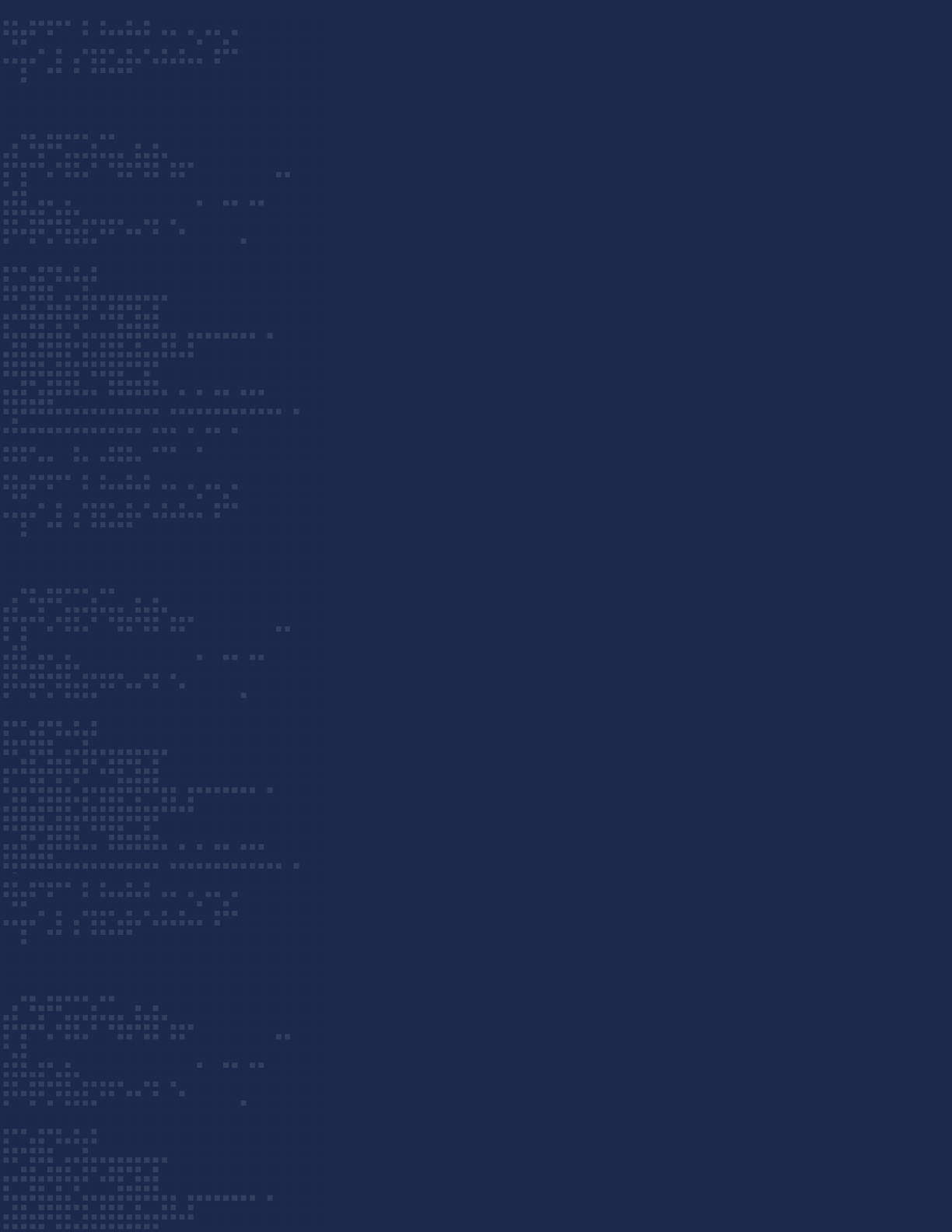
INSIDE THE GUIDE
GENERAL INFORMATION
Overview ............................................................................. 6
Intelligence Analyst Selection Process (IASP)
................... 7
Backgrounds of Interest
................................................... 10
Knowledge, Skills, and Abilities
........................................ 11
Intelligence Analyst Career Paths..................................... 12
In the Field or at Headquarters
......................................... 13
FBI Employment Requirements
........................................ 15
PREPARING FOR THE ASSESSMENTS
Testing Guidelines ............................................................ 19
Test-taking Tips
................................................................ 21
PHASE I: TESTING
Overview ........................................................................... 23
Working Style and Preferences Part I
............................... 24
Problem Solving Part I
...................................................... 27
Problem Solving Part I Answer Key
.................................. 30
Problem Solving Part II
..................................................... 31
Working Style and Preferences Part II
.............................. 32
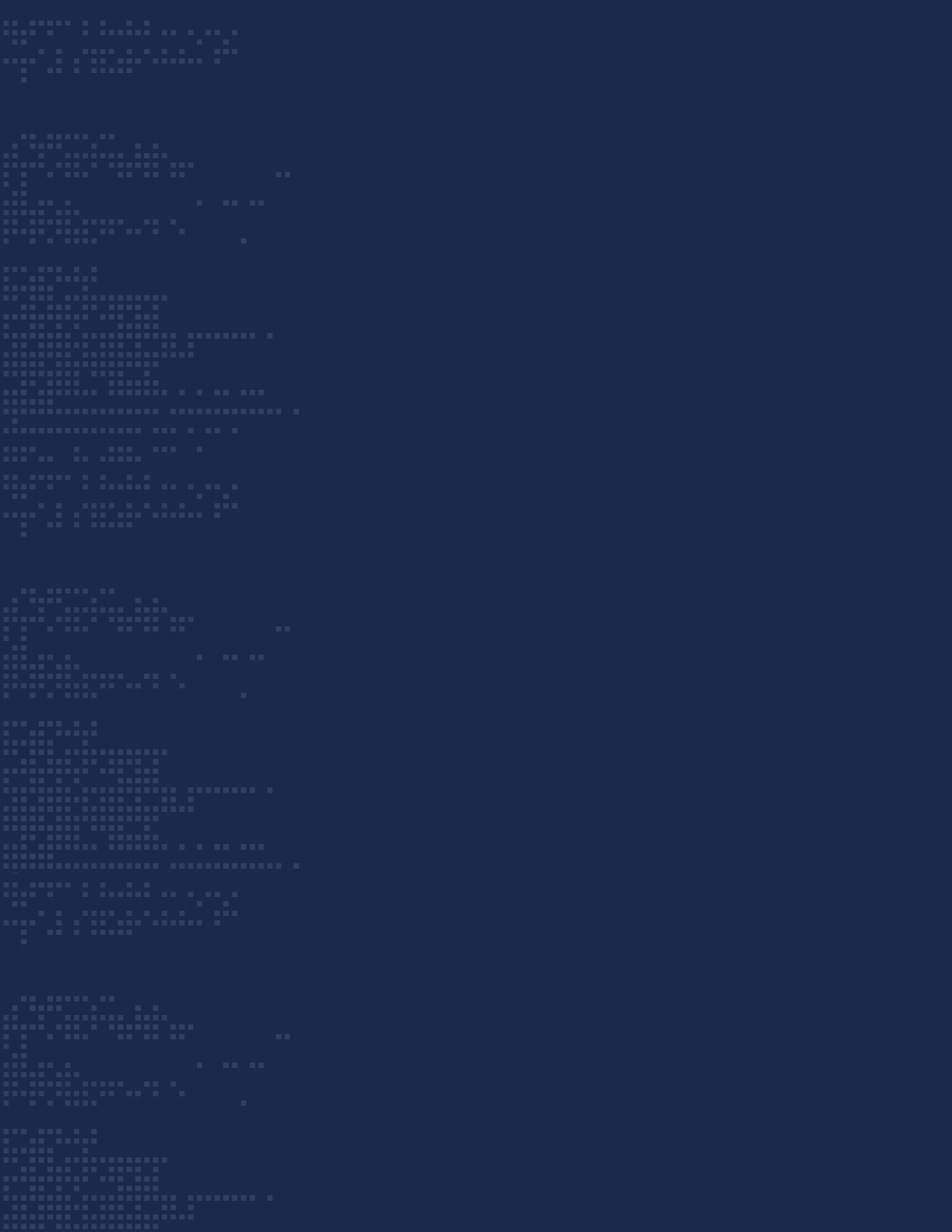
PHASE II: WRITING ASSESSMENT
Tips for the Writing Assessment ...................................... 34
PHASE III: STRUCTURED INTERVIEW
Overview ........................................................................... 36
RETESTING
Overview ........................................................................... 38
FREQUENTLY ASKED QUESTIONS

GENERAL
INFORMATION

Candidate Information
GENERAL INFORMATION
6
OVERVIEW
Intelligence analysts work tirelessly to fulll the FBI’s role in the global Intelligence
Community. Always on alert, they work proactively to identify threats, gaps, and
vulnerabilities using their natural curiosity to assess complex information and make
real-time analytical judgments. This helps decision makers form strategies to neutralize
and mitigate emerging threats, root out risks to our national security, and protect the
American people.
Often, intelligence analysts work in conjunction
with special agents, using data obtained during
investigations along with data from the internet,
open source checks, the Intelligence Community,
and other agencies.
Intelligence analysts are great puzzle solvers
and excellent investigators. Most are assigned to
Headquarters (HQ) and help create the “big picture”
that moves an investigation forward.
Our Intelligence Analyst Selection Process (IASP)
is rigorous, but those who make it through help us
protect the nation. Intelligence analysts:
• Use language, cultural, and historical knowledge
to combat international threats by working within
specically dened geographical and/or functional
areas (e.g., China program, Weapons of Mass
Destruction program, Al-Qaeda program, etc.).
• Leverage local and national intelligence databases,
analyze intelligence collected in the eld oces,
and develop fact-based conclusions and
intelligence reports to discover threats.
• Shape intelligence policies through maintenance
of extensive networks and partnership with local,
national, and international contacts within the
intelligence and law enforcement communities.
• Leverage contacts and information to prepare
briengs, reports, and communications for senior
FBI executives and other Intelligence Community
and law enforcement entities.
The purpose of this guide is to assist individuals
who are preparing for the IASP. This guide is
organized into sections according to testing and
hiring requirements.
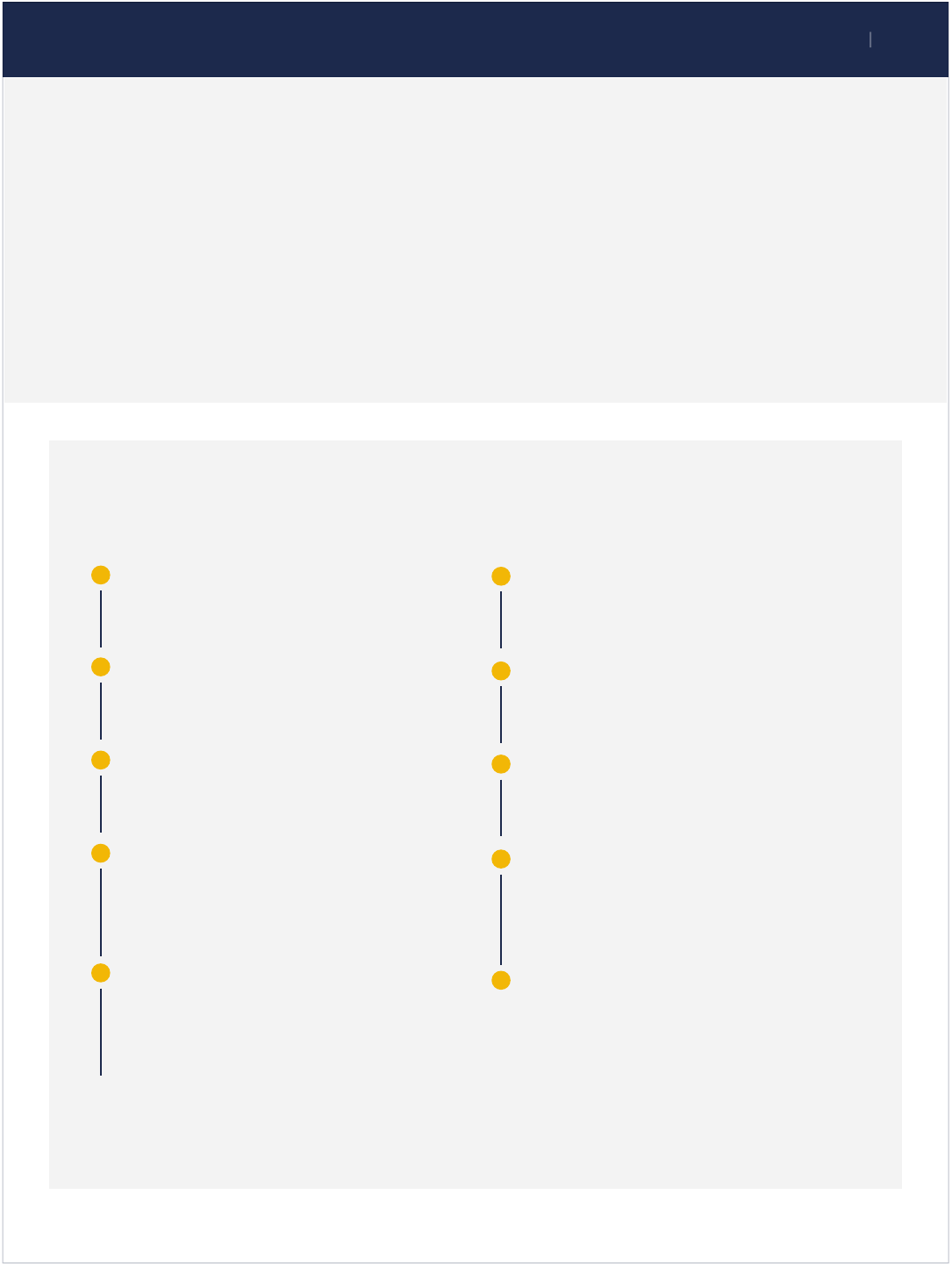
Candidate Information
GENERAL INFORMATION
7
INTELLIGENCE ANALYST
SELECTION PROCESS (IASP)
The Intelligence Analyst Selection Process (IASP) is the result of a comprehensive study
of the competencies required for the intelligence analyst position at the FBI. The ow chart
below lists the IASP steps. A more in-depth explanation of the critical skills and abilities
required, as well as an explanation of the steps, begins on the next page.
The IASP
STEP 1
Application
STEP 2
Preliminary Screening
STEP 3
Phase I: Testing
STEP 4
Phase II: Writing
Assessment
STEP 5
Phase III: Structured
Interview
STEP 6
Conditional Job Offer
STEP 7
Background Investigation
STEP 8
ONE Seminar
STEP 9
Basic Field Training Course
(BFTC)
STEP 10
Ocial Duty Location

Candidate Information
GENERAL INFORMATION
8
Steps 1 and 2: Application and
Preliminary Screening
You must attach all necessary forms (as listed
in the vacancy announcement) to your application.
Applications are screened for eligibility and suitability.
Steps 3 through 5: Phase I and II
Testing, Phase III Interview
If you pass the preliminary screening, as outlined
in the job posting, you will be contacted to begin
the three-phase selection process. You must
successfully complete one phase before moving to
the next.
• Phase I: Computer-based tests focused on
problem solving, work styles, and personal
preferences.
• Phase II: Written exercise simulating the
intelligence analyst’s role in reviewing
intelligence and preparing an intelligence product.
• Phase III: Structured interview assessing analyzing
information, conscientiousness, dealing with
adversity, humility, interpersonal skills, motivation,
oral communication, proactive learning, and
professionalism.
Step 6: Conditional Job Offer
If you pass all three phases, you will be considered
eligible to receive a Conditional Job Offer (CJO) for
employment as an intelligence analyst. The CJO will
include your position title, GS pay grade, and salary.
Conditional Job Offers are contingent upon signing
the FBI mobility agreement, a favorable adjudication
in the background investigation process, budgetary
requirements, and meeting the critical skills needed
by the FBI.
Step 7: Background Investigation
Once you receive a CJO, you will need to obtain a
Top Secret Sensitive Compartmented Information
(SCI) Clearance from the FBI in order to start
working as an intelligence analyst. The background
investigation includes a polygraph examination,
credit and arrest checks, interviews with associates,
references, past employers and neighbors, and
verication of educational achievements.
Timeframe: The average background
investigation takes approximately six
to 18 months, but may take longer
depending on where you have lived,
worked, or traveled.
Step 8: ONE Seminar
All new or current employees with the FBI, regardless
of job or duty station, attend a four-day Onboarding
New Employee (ONE) seminar at the FBI Academy
in Quantico, VA, during their rst week. This
includes learning about the FBI’s mission, history,
structure, and culture; briengs on ethics, security,
and Equal Employment Opportunity (EEO); a tour
of Quantico; and opportunities to begin developing
an FBI network. The FBI’s Leadership Doctrine is
emphasized as well.

Candidate Information
GENERAL INFORMATION
9
Step 9: Basic Field Training Course
(BFTC)
All newly hired intelligence analysts must attend and
successfully complete the FBI Basic Field Training
Course (BFTC) at the FBI Academy in Quantico,
VA. The BFTC is a mandatory 12-week training
course designed to provide you with the necessary
knowledge, skills, and abilities needed to effectively
perform the duties of an FBI intelligence analyst.
As a condition of employment, you must
successfully complete the course by meeting
both academic and suitability standards. Failure
to successfully complete the BFTC may result in
dismissal from the FBI.
IMPORTANT
Successful completion of the
BFTC is mandatory for all incoming
intelligence analysts.
Step 10: Career Placement
Upon successful completion of the background
investigation and BFTC, you will ocially join the FBI
as an intelligence analyst. New intelligence analysts
may be placed either at HQ or in a specic eld
oce. Placement is at the discretion of the FBI and
based on FBI needs at that time.

Candidate Information
GENERAL INFORMATION
10
BACKGROUNDS OF INTEREST
Education and experience requirements vary depending on the job role and grade
(GS level) of the position. Below is a list of potential backgrounds of interest for the
intelligence analyst position. Each position requires its own unique subject matter
expertise. You are encouraged to apply if you have additional background and experience
and may be hired on an as-needed basis.
Work Experience and/or
Areas of Study
• Area Studies (Middle East, Asia, Africa, China,
Far East)
• Biochemistry
• Biology
• Bioterrorism
• Chemistry
• Counterterrorism
• Criminal Justice
• Cybersecurity
• Engineering (Aeronautical, Chemical, Electrical,
Mechanical, Nuclear)
• English
• Finance
• Forensic Accounting
• Forensic Science
• Geography (concentration in Geospatial
Information Science)
• History
• Intelligence
• International Law
• International Relations/International Studies
• Political Science
• Physics
• Telecommunications
• Terrorism/International Terrorism
Domain Expertise
Culture
• Central Asia
• China
• Korea
• Middle East
Languages
• Albanian
• Arabic
• Chinese
• Dari
• Farsi
• Hebrew
• Indonesian
• Korean
• Pashto
• Punjabi
• Russian
• Urdu
• Vietnamese

Candidate Information
GENERAL INFORMATION
11
KNOWLEDGE, SKILLS,
AND ABILITIES
Considered the gatekeepers of our national security, FBI intelligence analysts break
down leads and valuable information into central components, share their ndings and
recommendations with key stakeholders, and contribute to plans of action to understand,
mitigate, and neutralize threats. Intelligence analysts often work in tandem with special
agents and other members of the intelligence team.
Due to the nature of the work, the following
knowledge, skills, and abilities are required:
• Oral Communication
• Nonverbal Communication
• Written Communication
• Maintain a Professional Image
• Critical Thinking and Information Evaluation
• Adaptive Analytic Thinking
• Synthesize Information
• Problem Detection
• Problem Resolution
• Structure and Plan Own Work Activities
• Relate Effectively with Others
• Demonstrate Interpersonal Sensitivity
• Detail Orientation
• Initiative and Motivation
• Seless Service Orientation
• Dependability
• Self-Condence
• Adapt to Changing Situations
• Stress Tolerance
• Integrity and Ethics
• Intellectual Curiosity
• Collaboration
• Humility
• Willingness to Learn
• Acclimate to New Cultures

Candidate Information
GENERAL INFORMATION
12
INTELLIGENCE ANALYST
CAREER PATHS
All intelligence analysts are responsible for conducting certain intelligence duties
and must perform at least one of the four analytic functions (Threat Analysis,
Collection Analysis, Domain Analysis, and Targeting Analysis) or the raw reporting
function. Intelligence analysts may also be placed into more specic roles that have
additional responsibilities.
Threat Analysis
• Embedded on investigative squads and units
in the eld or at HQ to provide support on
active cases.
• Assess and communicate real-time analytic
judgments regarding specic threats and
intelligence gaps and vocabulary.
• Understand emerging threats to enhance
domain knowledge and exploit intelligence
collection opportunities.
Collection Analysis
• Work to understand, assess, and corroborate
intelligence.
• Identify human and technical source collection
opportunities.
• Enhance FBI intelligence collection capabilities,
disseminate raw intelligence against priority
collection requirements and intelligence gaps.
Domain Analysis
• Consolidate comprehensive information into
strategic, analytic products that contextualize
intelligence and enhance each division’s
understanding of threats, gaps, and vulnerabilities.
• Perform domain analysis to articulate the
existence of a threat in the area of responsibility.
• Perform enterprise-wide strategic analyses.
• Conduct studies to identify threats and trends.
Targeting Analysis
• Bridge operational squads by identifying
intelligence collection opportunities and gaps
and helping to ensure timely and accurate
reporting of intelligence.
Reports Ocer
• Report raw intelligence in a timely manner through
various forms of media, documents, and general
information to determine patterns.

Candidate Information
GENERAL INFORMATION
13
IN THE FIELD OR AT
HEADQUARTERS
Newly appointed intelligence analysts will likely be assigned to one of the 56 eld oces,
as well as potentially FBI HQ, if a specialty need is identied. Opportunities exist for in-
grade promotion and transfers to HQ.
Field Oces and the Field
Intelligence Group
Intelligence analysts in the 56 FBI eld oces
are either embedded in squads or work in a
Field Intelligence Group (FIG), which integrates
the intelligence cycle into eld operations and
manages the Intelligence Program in coordination
with the Directorate of Intelligence (DI).
Each FIG is composed of intelligence analysts,
special agents, language analysts, and other FBI
specialists. Many FIGs work alongside ocers and
analysts from other federal and local intelligence
and law enforcement agencies.
Intelligence Analyst
Headquarters Division
Assignments
Counterterrorism Division (CTD)
CTD prevents acts of international and domestic
terrorism against the United States. The priorities
of the division include the detection, disruption,
and dismantlement of terrorist cells and support
networks in the United States before they act, as
well as the identication and prevention of acts of
terrorism by individuals acting independently.
Counterintelligence Division (CD)
CD protects the United States against foreign
intelligence operations and espionage. The division
interacts with U.S. law enforcement agencies and
Intelligence Community partners to neutralize the
intelligence activities of foreign countries and other
entities that pose a signicant threat to the United
States.
Criminal Investigative Division (CID)
CID coordinates, manages, and directs investigative
programs involving federal violations, focusing on
nancial crime, violent crime, drug-related crime,
organized crime, public corruption, and violations
of individual civil rights. CID guides eld oce
investigations against criminal enterprises and
individuals both in the United States and
internationally.
Cyber Division (CyD)
CyD addresses cyberthreats in a coordinated
manner, working with law enforcement agencies,
Intelligence Community partners, and the
private sector. This cooperation allows the FBI
to stay ahead of adversaries that threaten the
technological infrastructure of the United States.
CyD simultaneously supports FBI priorities across
division lines when aggressive technological
investigative assistance is required.

Candidate Information
GENERAL INFORMATION
14
Weapons of Mass Destruction
Directorate (WMDD)
As part of the National Security Branch, WMDD
employs an integrated strategy of analysis and
investigation to identify and disrupt operations and
threats. WMDD works with FBI HQ, eld oces,
other government agencies, industry, academia,
and strategic foreign partners.
Directorate of Intelligence (DI)
The mission of the DI is to collect, produce, and
disseminate actionable intelligence that enables
the FBI to identify and counter current and
emerging threats.
Reasonable
Accommodations
The FBI provides reasonable accommodations
to qualied individuals with disabilities. If you
believe you have a disability that will require special
arrangements during the hiring process, you may
request a reasonable accommodation at any time by
emailing [email protected].
Every test in the hiring process is evaluated
differently. Therefore, you must submit a reasonable
accommodation request for each test, if needed.
Reasonable accommodations are granted on
a case-by-case basis. Your request will receive
an individualized assessment; requests will be
processed in the order they were received.

Candidate Information
GENERAL INFORMATION
15
FBI EMPLOYMENT
REQUIREMENTS
Minimum Qualications
The FBI recruits and hires intelligence analysts of all
levels of experience, from college seniors to highly
experienced professionals. Intelligence analysts
generally enter the FBI at the GS-7 level with an
undergraduate degree and at the GS-9 level with a
graduate degree. Candidates should keep in mind
that if they apply to a vacancy for a GS-7 to GS-9,
they will be considered only for those grades listed in
the vacancy.
Education and experience requirements vary
depending on the job role and position grade. The
intelligence analyst position is part of the 0132 job
series.
Serving as an intelligence analyst is a very demanding
job with strict entry requirements. To become an FBI
intelligence analyst, you must be a U.S. citizen, able to
pass the FBI background investigation, and obtain a
Top Secret SCI Clearance and maintain the clearance
throughout your FBI career.
Employment Disqualiers
The following factors will automatically disqualify
job candidates from employment with the FBI:
• Non-U.S. citizenship
• A felony conviction
• A domestic violence conviction
• Violating the FBI Employment Drug Policy
• Defaulting on a student loan insured by the U.S.
government
• Failing an FBI-administered urinalysis drug test
• Failing to register with the Selective Service
System (for applicants who were assigned male at
birth only, exceptions apply – please click here to
nd out more)
• Knowingly or willfully engaging in acts or activities
designed to overthrow the U.S. government by
force
• Failing to pay court ordered child support
• Failing to le federal, state, or local income tax
returns
Please note that if any of the
above factors apply to you, you
don’t qualify for FBI employment.
Please make sure you can meet
FBI employment requirements and
pass all disqualiers before you
submit an application.
Employment Drug Policy
The FBI is rmly committed to a drug-free
workplace. Interested applicants who are currently
using illegal drugs or misusing or abusing legal
drugs or other substances for illicit purposes at
the time of the application process will be found
unsuitable for employment.
The FBI balances the needs of the organization and
the importance of maintaining the public integrity
necessary to accomplish its law enforcement and
intelligence missions by hiring the most qualied
candidates. The guidelines are used by all entities
in the hiring process to help determine whether an

Candidate Information
GENERAL INFORMATION
16
applicant’s prior drug use makes them eligible and/
or suitable for FBI employment.
A candidate will be found unsuitable for employment
and automatically disqualied if they deliberately
misrepresent their drug history in connection with
their application for employment. Additionally,
candidates are automatically disqualied under the
following criteria:
Marijuana Usage
• Candidates cannot have used marijuana or
cannabis in any form (natural or synthetic) and in
any location (domestic or foreign) within the one
(1) year preceding the date of their application for
employment.
• Cannabidiol (CBD) or hemp-derived products
which consist of more than 0.3 percent
tetrahydrocannabinol (THC) meet the legal
denition of marijuana.
• Dronabinol (sold as Marinol, Syndros, or
generic equivalents) is the only pharmaceutical
drug containing THC that the Food and Drug
Administration has approved for lawful use with a
medical prescription.
Other Illegal Drugs
• Candidates cannot have used any illegal
drug, other than marijuana, within the ten (10)
years preceding the date of the application for
appointment.
Prescription Drugs/Legally
Obtainable Substances
• Candidates who have misused any prescription
drug within one (1) year preceding the date
of application for employment may be found
unsuitable and disqualied.
• Candidates who have abused any prescription
drug or over-the-counter substance within three
(3) years preceding the date of application
for employment may be found unsuitable and
disqualied.
• Candidates who have abused any legally obtained
substance (e.g., inhalants, solvents, etc.) within
three (3) years preceding the date of application
for employment may be found unsuitable and
disqualied.
• Candidates cannot have used anabolic steroids
without a prescription from a licensed practicing
physician within ten (10) years preceding the date
of the application for employment.
Background Investigation
Process
After you receive a CJO, the next step is to begin the
background investigation process. You must receive
an FBI Top Secret Clearance before beginning
employment with the FBI; intelligence analyst
applicants must obtain a Top Secret SCI Clearance.
Once you have been instructed to do so by the local
eld oce, you will initiate the FBI background
investigation process. As soon as the FBI receives
a completed set of background investigation forms
(your local eld oce point of contact [POC] will
provide you with an address), the FBI will commence
with your background investigation, which includes:
• A polygraph examination.
• Urinalysis.
• Fingerprints.
• Credit and records checks.
• Extensive interviews with former and current
colleagues, neighbors, friends, professors, etc.
You will be contacted by the FBI eld oce
processing your background investigation to
schedule your interview, urinalysis, and
polygraph examination.
The polygraph will check the truthfulness of
all of your responses on the FBI background
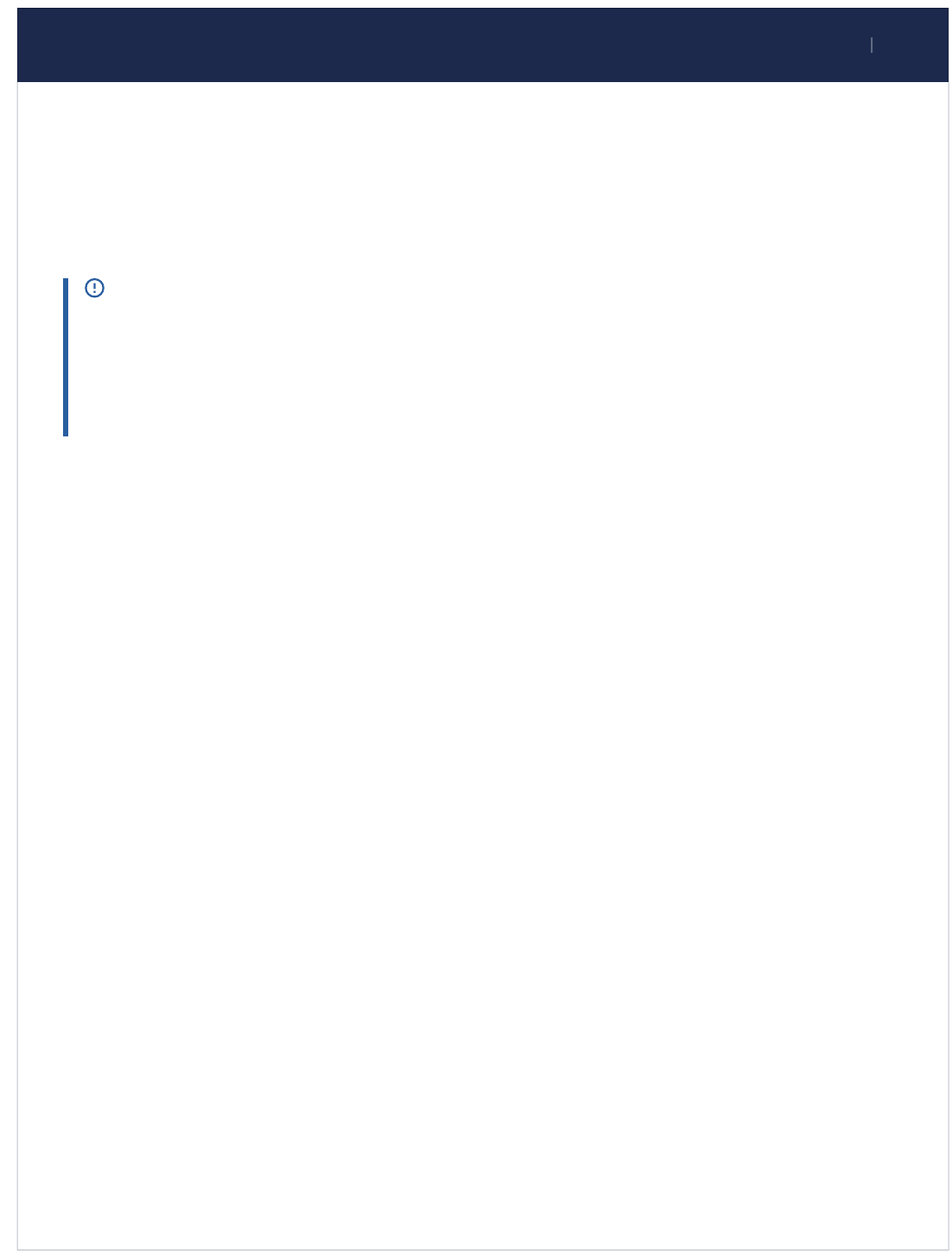
Candidate Information
GENERAL INFORMATION
17
investigation forms. In the next phase of the
process, the FBI will perform extensive records
checks (e.g., credit checks, police records checks,
etc.) and FBI investigators will interview current
and former associates.
IMPORTANT
Please note that because of the
thoroughness of the background
investigation process, it can take
several months or more to receive
your FBI Top Secret SCI Clearance.

PREPARING FOR
THE ASSESSMENTS

Candidate Information
GENERAL INFORMATION
19Candidate Information
PREPARING FOR THE ASSESSMENTS
19
TESTING GUIDELINES
When and Where
Phases I and II are administered at various
locations throughout the United States. The FBI has
partnered with PSI Services (PSI) to administer the
intelligence analyst assessments at local testing
sites for the convenience of applicants. All testing is
conducted stateside.
Scheduling
PSI will send you an invitation to schedule your
Phase I and II tests. You will have up to 10 days to
schedule and complete each phase.
What to Bring
You must bring a driver’s license to the assessment.
If your driver’s license does not have a photo,
you must provide an additional form of photo
identication. You are not permitted to participate
in the testing process without proper photo
identication.
What NOT to Bring
• Reference materials (dictionaries, textbooks, etc.)
• Pens and/or pencils
• Reading materials (books, magazines,
newspapers, etc.)
• Work-related materials
• Briefcases, backpacks, and purses
• Papers (resumes, notication letters, notes,
blank paper, etc.)
• Cellular phones (alarms on watches must be
turned off)
• Other electronic devices (calculators, tape
recorders, cameras, radios, etc.)
• Firearms (if you are currently in a law enforcement
position, you may not bring your rearm into FBI
space or the testing facility)
What to Wear
Phase I
Wear casual, comfortable clothing suitable for an
oce environment.
Phase II
Wear casual, comfortable clothing suitable for an
oce environment.
Phase III
Dress in a professional manner. Business attire is
recommended.
How Long the Phases Take
to Complete
Phase I
Approximately 110 minutes
Phase II
Approximately 90 minutes
Phase III
Approximately 60 minutes

Candidate Information
GENERAL INFORMATION
20Candidate Information
PREPARING FOR THE ASSESSMENTS
20
Basic Testing Rules
Tardiness — Please arrive on time. If you are late,
you will not be permitted to participate in testing.
Eating/Drinking — Eating and drinking are not
allowed during testing.
Smoking — Smoking and chewing tobacco are not
allowed during testing.
Restroom Use — You may not use the restroom
during administration of the tests unless it’s
an emergency.
Cellphone Use — You are not allowed to use a
cellphone during the testing process.
Time Limits* — Time limits are strictly enforced.
When time has elapsed, you must immediately stop
what you are doing and await further instructions.
Failure to comply will result in being disqualied
from the process.
*Note: Special accommodations are available for those with a
disability or impairment that requires extra time.
Reasonable Accommodations — The FBI
provides reasonable accommodations to qualied
individuals with disabilities. If you believe you have
a disability that will require special arrangements
during the hiring process, you may request a
reasonable accommodation at any time by sending
an email to [email protected]. Each test in the
hiring process is evaluated differently. Therefore,
you must submit a reasonable accommodation
request for each test, if needed. The decision to
grant reasonable accommodations will be made on
a case-by-case basis.
Talking — Talking to other applicants during any test
is not allowed.
Cheating — Any attempt to see another applicant’s
answers; obtain assistance verbally or in writing;
or record, document, or otherwise retain/discuss
the questions/answers to the assessments is
considered cheating. Those caught cheating are
discontinued from further consideration for the
intelligence analyst position.
Discussing the Tests — You are not permitted to
discuss any part of the tests or interview questions
with anyone during or after the testing process.
We discourage discussing your prospective FBI
employment on any social media or networking
sites. You should remain discreet about your
application, including all interview and testing
information, during the entire FBI hiring process.
This ensures other potential applicants are not
given an unfair advantage or disadvantage in
the selection process. You are required to sign a
nondisclosure form prior to the assessment. If you
are found to have violated this agreement, you will
be disqualied.
Leaving the Premises — You are not allowed to leave
the testing premises during testing.

Candidate Information
GENERAL INFORMATION
21Candidate Information
PREPARING FOR THE ASSESSMENTS
21
TEST-TAKING TIPS
Before the Test Session
• Plan ahead so you are well rested before the
test session.
• Make sure you know the exact location and time of
the test session, allow plenty of time to get to the
test site, use the restroom, and relax.
• Wear something comfortable; dress for a range
of temperatures.
• Reduce test anxiety and tension by breathing
deeply and stretching before the test.
• Start the test session with a positive attitude,
determination to do your best, and focus on what
you do know, not on what you don’t know.
During the Test Session
• Read all of the test instructions carefully and
follow them exactly. Be sure you understand the
test instructions before you start.
• If you have time remaining at the end of a test,
proofread your answers.
• Try to stay relaxed; if you have trouble
concentrating or become tense, pause
and take a few deep breaths.
• Read each question and all of the response
options completely before choosing your answer.
• Be careful not to add or skip any words in the
question or response choices.
• Pay attention to words like NOT and EXCEPT.
• Do not overinterpret questions or try to nd
hidden meanings; the questions are not designed
to be tricky.
Tips for the Writing
Assessment
• Read the written exercise instructions carefully.
Make sure you understand what the exercise
requires. Do not go beyond the material provided;
do no make up facts.
• You may write on the printed materials.
• You should ask the testing site proctor any
questions regarding the testing site and/or
technical issues you might encounter while you
are taking the test. The testing site proctor cannot
answer any questions regarding the test itself.
• Please be detailed and thorough in the written
report required in this exercise.
Tips for the Interview
• Be yourself.
• The evaluators will be taking notes during the
interview to assist them in documenting the
results. Do not let this distract you.
• Provide detailed information when answering the
interview questions; don’t be modest in your responses.
To provide the best examples of your skills and abilities,
draw from all of your life’s experiences, not just the most
recent ones. Experiences can be from work or school.
• Remember that the interview panel has no
applicant information about you. They have not
seen your application. They only know your name.
• Do not make assumptions about what the
evaluators are seeking. The interview instructions
are straightforward. There are no “trick” questions.
• Study your resume and be able to speak about
how your experiences align with the critical skills
and abilities required of intelligence analysts.

PHASE I:
TESTING

Candidate Information
GENERAL INFORMATION
23Candidate Information
PHASE I: TESTING
23
OVERVIEW
The Phase I test is a computerized exam that takes approximately 110 minutes
to complete.
You will take four tests to measure the thinking and reasoning skills required to perform
the intelligence analyst job, as well as background experiences that indicate whether or
not the intelligence analyst work environment would be a good t.
The tests are administered under timed conditions. If you nish a test before the allotted
time limit, spend the remaining time proofreading your answers or begin the next test.
Some tests won’t allow you to return to previous answers, so you’ll have to move on to
the next test once the test you’re working on is complete.
The Four Phase I Tests
Test Name
# of
Questions
Working Style and Preferences
Part I
74
Problem Solving Part I 24
Problem Solving Part II 12
Working Style and Preferences
Part II
26
All questions use a multiple-choice format. For
Problem Solving Part I, there is only one correct
answer per question. For the Working Style and
Preferences Part I and Problem Solving Part II,
there are no single “correct” answers, but some
answers are worth more points than others. For
the Working Style and Preferences Part II, there
are no “correct” answers. Your responses will
show whether the personality traits you possess
are aligned with the intelligence analyst role.
You must pass Phase I to be considered for
Phase II. Individuals who fail Phase I may not
take it again until the standard retest period of
12 months has elapsed.

Candidate Information
GENERAL INFORMATION
24Candidate Information
PHASE I: TESTING
24
WORKING STYLE AND
PREFERENCES PART I
Working Style and Preferences Part I measures your ability to respond to situations
that may be encountered in the intelligence analyst work role. It also measures your
behavioral preferences.
The test will ask you to respond to two types of
questions presented together in a random order.
The rst type of question will ask you to provide
information about your preferred or typical ways
of behaving at work. When you answer, you should
think of work, school, or similar situations rather
than domestic or social situations. For these
questions, you will be presented with several
statements. Your task will be to rate how well each
statement represents your own behavior.
The second type of question will ask about your
attitudes related to potential interactions you might
have in an intelligence analyst job role. For each
question, you will choose the one answer that best
describes how you would most likely respond. While
some questions or possible answers may not sound
exactly like something you might experience on
the job, they’re intended to be generally applicable
to everyone and don’t require special training or
experience to answer them.
You can prepare by:
• Considering how you interact with others in
the workplace, in school, or in other work-like
activities. Think about the way you worked with
others on group projects or on teams and how you
worked with supervisors or professors.
• Considering how you’ve typically handled
assignments, your approach to completing them,
and how you handled problems or obstacles.
• Considering how you typically communicate
with coworkers, professors, supervisors, fellow
students, or fellow volunteers. Think about the way
you tried to explain things to others or how you
persuaded them to do something.
• Reading general study guides on how to respond
to situational judgment tests and personality and
attitude inventories.
IMPORTANT
Some study guides will advise you
to answer in ways to “beat the test”
even if it means claiming qualities
or experiences that you don’t have.
The FBI doesn’t wish to hire
candidates who provide unrealistic
or false responses. If the FBI
determines that you falsied your
responses on the Working Style
and Preferences Part I and II, your
job offer could be withdrawn.

Candidate Information
GENERAL INFORMATION
25Candidate Information
PHASE I: TESTING
25
The following questions measure several
personal characteristics and tendencies related
to performing effectively in an intelligence
analyst job. It contains a number of statements
and questions. You must read each statement
or question carefully and decide which of the
possible answers is most accurate for you. There
are no “correct” or “incorrect” answers.
If the question does not ask about school
experiences, then think of work experiences when
choosing a response. For example, if a question
involves getting into arguments with others, think
in terms of getting into arguments with coworkers.
If you do not have any job experience, then base
your answers on experiences in school, volunteer
activities, or personal life.
Question Type 1 Samples
1. When the work environment is in ux, I like to
slow down and reevaluate my strategy.
1 = Very untrue of me
2 = Untrue of me
3 = Somewhat untrue of me
4 = Neutral
5 = Somewhat true of me
6 = True of me
7 = Very true of me
2. As projects change, I update my plan to
complete my work activities.
1 = Very untrue of me
2 = Untrue of me
3 = Somewhat untrue of me
4 = Neutral
5 = Somewhat true of me
6 = True of me
7 = Very true of me
3. I am at my most productive when I am working
on several projects at a time.
1 = Very untrue of me
2 = Untrue of me
3 = Somewhat untrue of me
4 = Neutral
5 = Somewhat true of me
6 = True of me
7 = Very true of me
Question Type 2 Samples
The following are sample scenarios for the second
question type.
1. You are running late for an appointment after
work. You pack up all of your things and
accidentally grab classied information and go
home. The next day you realize you have taken
the classied information home. How are you
most likely to respond?
A. Do nothing but take extra steps to
ensure it does not happen again.
B. Call a trusted coworker to ask what they
would do in this situation.
C. Put the information in your car and lock
it so that it is safeguarded.
D. Contact your supervisor and report the
incident to security personnel.

Candidate Information
GENERAL INFORMATION
26Candidate Information
PHASE I: TESTING
26
2. You are working with people in your
organization whose work overlapped with yours
but whose goals and work culture are different
or even contradictory to your own. This has
caused several conicts and has made your
work slow and laborious. How are you most
likely to respond in order to do your job most
effectively?
A. Establish a weekly call to settle major
conicts but otherwise work in parallel
to avoid spending too much
time debating.
B. Consider their culture and goals as
paramount and pursue those rst and
your original goals as secondary.
C. Learn about their culture and determine
where there is common ground. Use
that common ground to create mutually
benecial actions.
D. Consider your goals and culture as
paramount and pursue those rst and
their goals as secondary.
3. A member of your team conded in you that
when he was in college he stole someone’s
report and submitted it in his name. How are
you most likely to respond?
A. Advise the team member that he should
self-report this incident and retake the
training class on integrity and ethics.
B. Report the team member to your
supervisor.
C. Tell the team member that the past is
the past and as long as he understands
that it was wrong, he should no
longer harbor the guilt.
D. Have a discussion with the team
member regarding his actions and why
they were wrong.
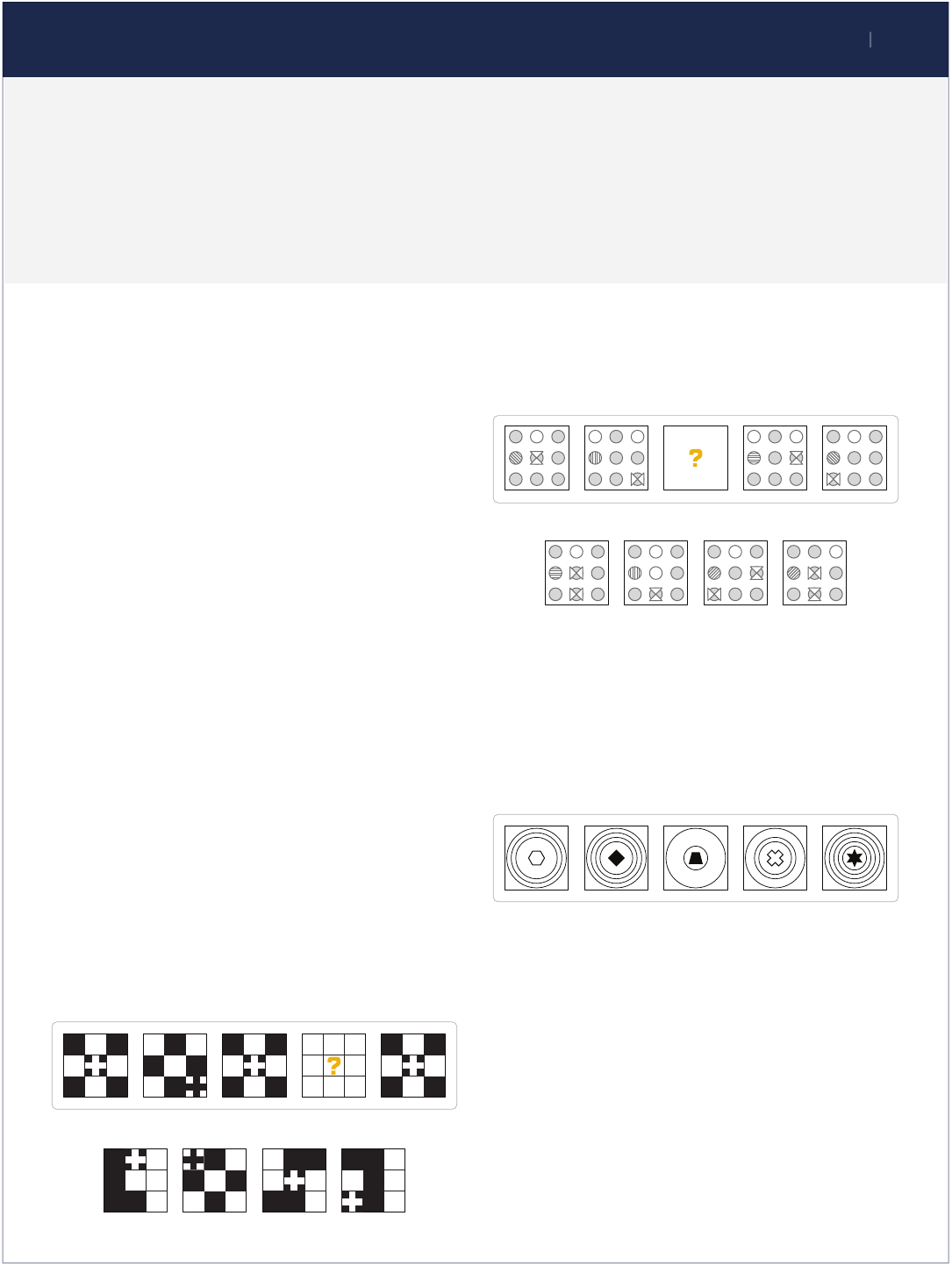
Candidate Information
GENERAL INFORMATION
27Candidate Information
PHASE I: TESTING
27
PROBLEM SOLVING PART I
In Problem Solving Part I, you will encounter either pattern-based or memory-
based questions.
Sample Pattern-based
Questions
For the pattern-based questions, you will use your
problem solving and decision-making skills to
answer questions on various gures containing
shapes, lines, and patterns. You will be asked to
identify one of the following: the correct missing
piece, the gure or shape that does not belong, or
the next step in a series of gures.
All of the information you need to answer these
questions is provided in the accompanying gures.
After each question, there are four or ve response
options. There is one correct answer to each question.
You can prepare by:
• Improving your spatial awareness through practice
problems and pattern-recognition exercises.
• Reading general study guides on how to prepare
for abstract reasoning and gural or pattern tests.
• For complex patterns, you can simplify the gures
by focusing on one element at a time.
Sample 1
Choose the response that completes the sequence:
A. B. C. D.
Sample 2
Choose the response that completes the sequence:
A. B. C. D.
Sample 3
Which of the ve does not belong? Choose the
response that does not follow the rules of the
other four:
A. B. C. D. E.

Candidate Information
GENERAL INFORMATION
28Candidate Information
PHASE I: TESTING
28
Sample Memory-based
Questions
For the memory-based questions, you will be using
your working memory skills. Working memory is an
important component of the process of reacting and
thinking quickly while processing information, which
intelligence analysts are required to do regularly.
You will be presented with an image or a set of
sentences and/or numbers. Your working memory
will be tested on the next screen with questions
about the previously presented information. Please
pay close attention to the questions and choose
the best answer for each question. There are
between one and four questions about each set
of information. There is one, and only one, correct
answer to each question. Each set has up to four
accompanying statements; there is only one correct
answer.
You can prepare by:
• Improving your memory through practice problems
and memory-recall exercises.
• Reading general study guides on how to prepare
for working memory tests.
Sample 1
Investigators found a document showing how many
credit card numbers had been stolen from card
readers at different retail stores.
Randy’s Warehouse had 44 card numbers stolen.
Mean Machines had 3 card numbers stolen. InXcess
had 23 card numbers stolen. Crafter’s had 0 card
numbers stolen.
Which of the following stores did not have any credit
card information stolen?
A. Amber Cave
B. InXcess
C. Crafter’s
D. Traveler’s
Sample 2
First, the word “Donkey” will be presented. Followed
with a math problem. The math problem will be
something like:
“Is 10 divided by 2 plus 2 equal to 7?”
and you should determine whether the given answer
is correct or incorrect. If the answer is correct,
respond yes; if the answer is incorrect, respond no.
After the math problem, you will repeat the process
several times — that is, single words will be
presented followed by a math problem.
At some point, you will be asked to recall all the
words from the series. This means you should
indicate the order in which the words were
presented. Any mistake (recalling too many items,
recalling too few items or recalling items in the
wrong order) counts as incorrect.
Below is an example of a question you might
encounter in the test.
Banana
Is 4 x 2 + 7 = 15?
Yes No
Awake
Is 10 ÷ 2 + 2 = 7?
Yes No
Bicycle
Is 35 ÷ 7 - 4 = 3?
Yes No
Jaw
Is 5 + 6 + 7 = 17?
Yes No
What were the words presented in the previous set,
in the proper order?
A. Banana, Awake, Bicycle, Jaw
B. Awake, Banana, Bicycle, Jaw
C. Bicycle, Banana, Jaw
D. None of the above
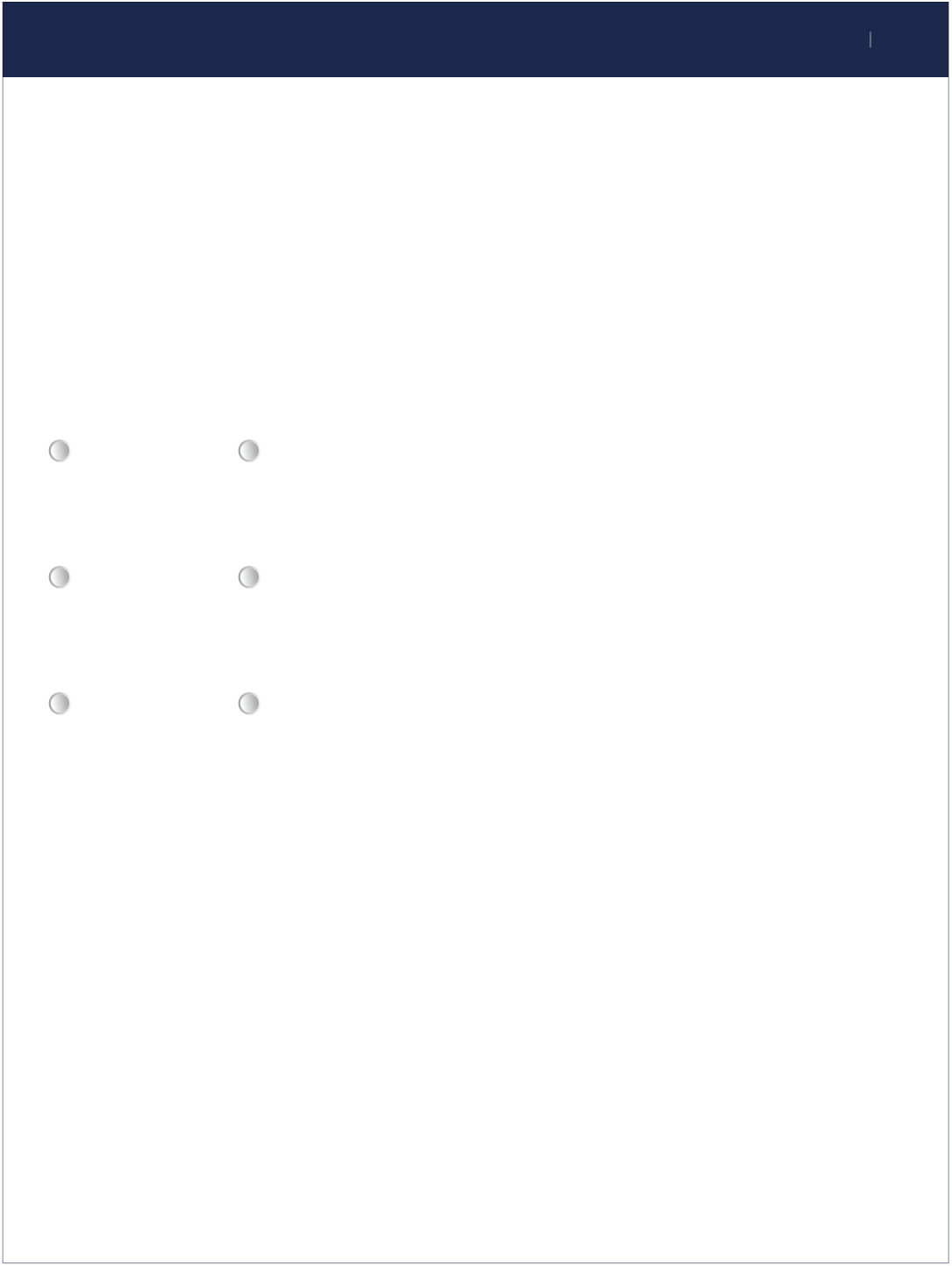
Candidate Information
GENERAL INFORMATION
29Candidate Information
PHASE I: TESTING
29
Sample 3
Select whether the sentences shown make sense
AND remember the LAST word in the sentence.
After you select a response, a new sentence will be
presented. At some point, you will be asked to recall
the last word in each sentence.
Below is an example of a question that you might
encounter in this test.
The agency and its partners gathered a large
amount of evidence and used an array of
investigative techniques.
Makes Sense Nonsense
In 1982, the rst major drug bust after the FBI was
given concurrent jurisdiction with the DEA over
narcotics violations.
Makes Sense Nonsense
By employing the same suite of tools and
approaches used by the FBI to address
organized crime.
Makes Sense Nonsense
Select the words you remember in the order they
were presented to you.
A. Techniques, violations, crime
B. Abilities, violence, criminal
C. Capabilities, criminal, violation
D. None of the above

Candidate Information
GENERAL INFORMATION
30Candidate Information
PHASE I: TESTING
30
PROBLEM SOLVING PART I
ANSWER KEY
Sample Pattern-based
Answers
1. B. Squares on the outside move clockwise in
the outer border of the grid. The square in the
center containing a cross moves diagonally.
2. C. The top row of dots alternates between a
blue and clear ll; the middle left column dot
has stripes that rotate clockwise 45 degrees;
and the hourglass is always sideways in the
middle row and upright in the bottom row.
3. E. An even number of concentric circles
indicates the shape is black, an odd number of
concentric circles indicates the shape is white.
Sample Memory-Based
Answers
1. Crafter’s had 0 credit card numbers stolen.
2. Yes. 4 x 2 + 7 is 15
Yes. 10 ÷ 2 + 2 is 7.
No. 35 ÷ 7 – 4 is not 3.
No. 5 + 6 + 7 is not 17.
A. Banana, awake, bicycle, jaw.
3. Makes Sense
Nonsense
Nonsense
A. Techniques, violations, crime.

Candidate Information
GENERAL INFORMATION
31Candidate Information
PHASE I: TESTING
31
PROBLEM SOLVING PART II
In Problem Solving Part II, you will use your problem solving and reasoning skills to analyze
scenarios and draw logical conclusions. These skills are important for analyzing information
and making decisions in the intelligence analyst role. There are multiple correct answers to
each question, but you must decide the most plausible or best answer to the question.
Sample Questions
Below are examples of questions that you might see
in this test. The answers worth the most points are
in bold. You can prepare by:
• Searching for online tools or reading books
that explain how to think about abductive
reasoning problems.
• Solving practice questions published in reasoning
and logic skills workbooks. Such workbooks are
available in most libraries and bookstores.
• Taking a course to improve your reasoning skills.
• Thoroughly reviewing this Candidate Information
Guide before scheduling your test.
Sample 1
A woman is found out of breath on the ground.
She is next to a bicycle, has an emergency medical
bracelet on, and has an inhaler in her pocket. During
the investigation, you learn that her inhaler was
empty. Choose the most plausible explanation.
A. She was involved in an accident.
B. Her workout triggered the
asthma attack.
C. The medication in the inhaler did
not work.
D. Pollen triggered the asthma attack.
Sample 2
A nurse notices an increase in new patient referrals
in her oce. The vast majority of the new patients
are retired with a xed income and are 65 and
older with a disability. These patients’ visits occur
exclusively at their homes and are more expensive
than oce visits. You suspect fraud may be
occurring. Choose the question you would ask to
further the investigation.
A. Do these patients have health insurance?
B. Where are the patients’ homes located?
C. What is the age of the neighborhood
population?
D. How many retirement homes are near
the oce?
Sample 3
You nd out that many of the patients had federal
insurance for those 65 and older with a disability.
With this new information, what question would you
ask next to further the investigation?
A. Are all of the home visits covered
by insurance?
B. What is the general health of these patients?
C. How often is the doctor in the
medical oce?
D. How many nurses work in the
medical oce?
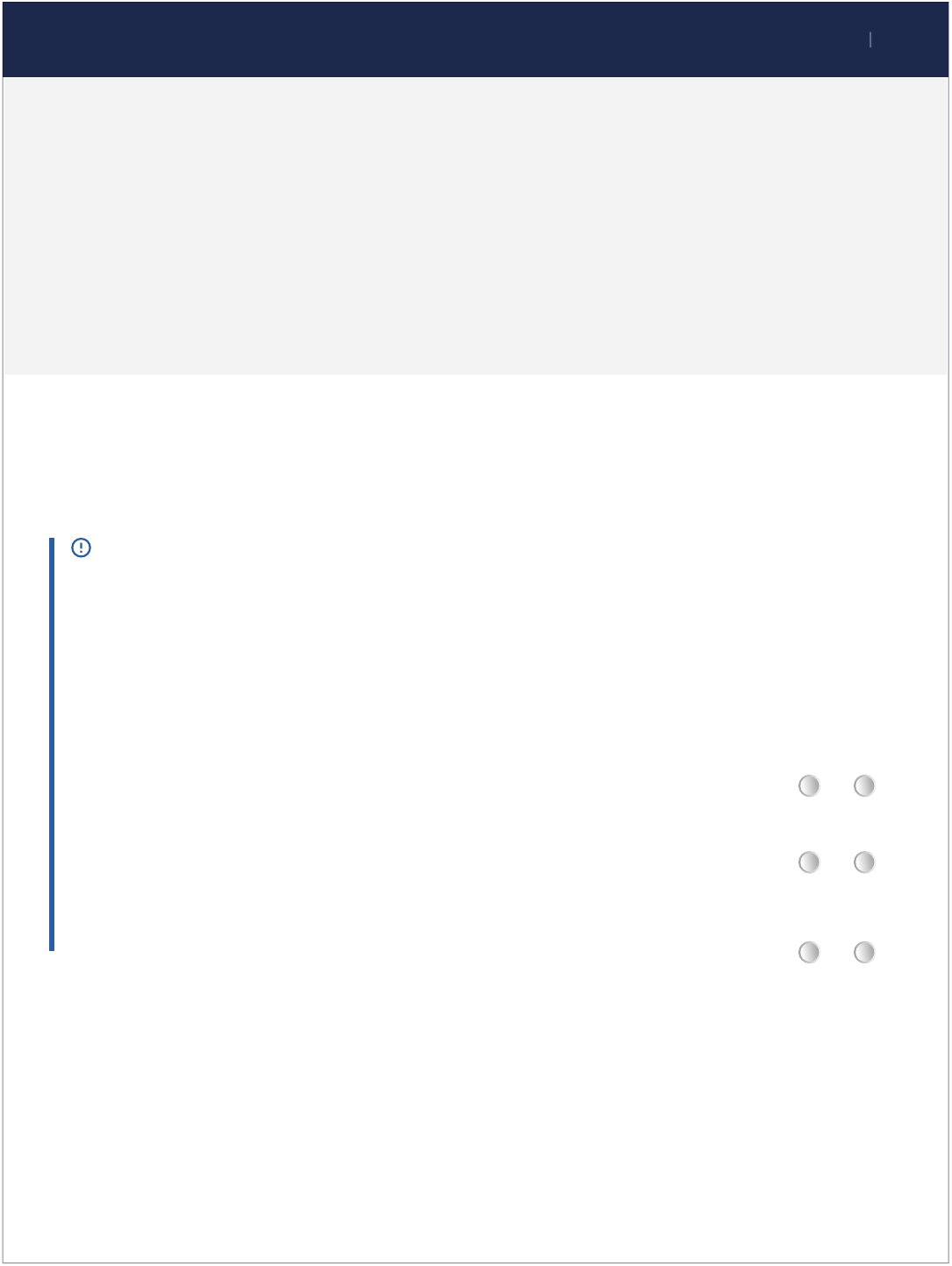
Candidate Information
GENERAL INFORMATION
32Candidate Information
PHASE I: TESTING
32
WORKING STYLE AND
PREFERENCES PART II
For Working Style and Preferences Part II, you will be presented with three statements
simultaneously and will need to rank them in terms of which statements are most and
least like you.
While there is no “correct” answer, your responses
will show whether the personality traits you possess
are aligned with those that are important to the
intelligence analyst work role.
IMPORTANT
Some study guides will advise
you to answer in ways to “beat
the test” even if it means
claiming qualities or experiences
that you don’t have. The FBI will
not hire candidates who provide
unrealistic or false responses. If,
during later portions of the hiring
process, such as a background
check, the FBI determines that
you falsied your responses
on the Working Style and
Preferences Part I and II, your job
offer could be withdrawn.
You can prepare by:
• Thinking about how you interact with others
in the workplace, in school, or in other
work-like activities.
• Think about the way you worked with others on
group projects or on teams and how you worked
with supervisors or professors.
• Thinking about how you have typically handled
assignments, your approach to completing them,
and how you handled problems or obstacles.
• Thinking about the way you typically communicate
with coworkers, professors, supervisors, fellow
students, or fellow volunteers. Think about the way
you tried to explain things to others or how you
persuaded them to do something.
Sample Questions
An example of this triplet format is shown below:
Most Least
I persuade other people to do
things my way.
I nd ways to remove
obstacles to doing my work,
regardless of the risks.
I cooperate with others on
my team even if I don’t agree
with them.
Select which statement is “Most like you” and which
statement is “Least like you.” You can only select
one statement for each.

PHASE II:
WRITING ASSESSMENT

Candidate Information
GENERAL INFORMATION
34Candidate Information
PHASE II: WRITING ASSESSMENT
34
TIPS FOR THE WRITING
ASSESSMENT
Phase II is a timed writing assessment that simulates the intelligence analyst’s role in
reviewing intelligence and preparing intelligence products.
First, read the standard script that explains the
instructions for the exercise, the allotted time, etc.
At the start of the assessment, read the set of
materials provided and then write a passage that
relates to what you have read.
You must pass Phase II to be considered for Phase
III. Passing Phase II does not guarantee that you will
be invited to Phase III.
• Read the Writing Assessment instructions
carefully. Make sure you understand what the
exercise requires. Do not go beyond the material
provided; that is, do not make up facts.
• You may write on the printed materials.
• You should ask the testing site proctor any
questions regarding the testing site and/or
technical issues you might encounter while you
are taking the test. The testing site proctor cannot
answer any questions regarding the test itself.
• Please be detailed and thorough in the written
report required in this exercise. You will have 90
minutes to complete this test.

PHASE III:
STRUCTURED INTERVIEW

Candidate Information
GENERAL INFORMATION
36Candidate Information
PHASE III: STRUCTURED INTERVIEW
36
OVERVIEW
Phase III is a 1-hour, structured panel interview that assesses analyzing information,
conscientiousness, dealing with adversity, humility, interpersonal skills, motivation, oral
communication, proactive learning, and professionalism. Each panel consists of three senior-
level intelligence analysts and all interviews are recorded. Each panel will read a standardized
script to the applicant before the interview begins and will score each interview when
completed.
Note: While you must pass Phase III to receive a CJO, passing the test doesn’t guarantee a CJO will be extended.
Tips for the Structured
Interview
• Be yourself.
• The evaluators will take notes during the interview
to assist them in documenting the results. Do not
let this distract you.
• Provide detailed information when answering
the interview questions; don’t be modest in your
responses. To provide the best examples of
your skills and abilities, draw from all of your
life’s experiences, not just the most recent ones.
Experiences can be from work or school.
• Remember that the interview panel has no
applicant information about you. They have not
seen your application. They only know your name.
• Do not make assumptions about what the
evaluators are seeking. The interview instructions
are straightforward. There are no “trick” questions.
• Study your resume and be able to speak about
how your experiences match with the critical skills
and abilities required of intelligence analysts.
Travel Arrangements for
Phase III
Applicant coordinators are responsible for:
• Making all travel and lodging arrangements for
an applicant processing within his or her area of
region (AOR) to attend Phase III testing. It is the
responsibility of the applicant coordinators to
secure the most cost-effective and ecient mode
of transportation for the applicant.
• Completing any travel budget preauthorization
requests or forms, as required by the Finance
Division (FD), on behalf of the applicant prior to
travel and assisting in completing any necessary
forms or vouchers once travel is completed.
Expenses will be reimbursed using the standard
government rates listed on the GSA website.
Failure to Report for Phase III
Applicants faced with emergency situations that
prevent them from attending scheduled Phase III
testing must contact their POC as soon as
possible. If you fail to report for scheduled
Phase III testing without providing acceptable
explanations, you will not be offered other
opportunities to test and will be permanently
deactivated from the IASP. New Agent/Analyst
Testing and Selection Unit (NAATSU) Management
will review all cancellations and determine if an
acceptable explanation was provided.

RETESTING
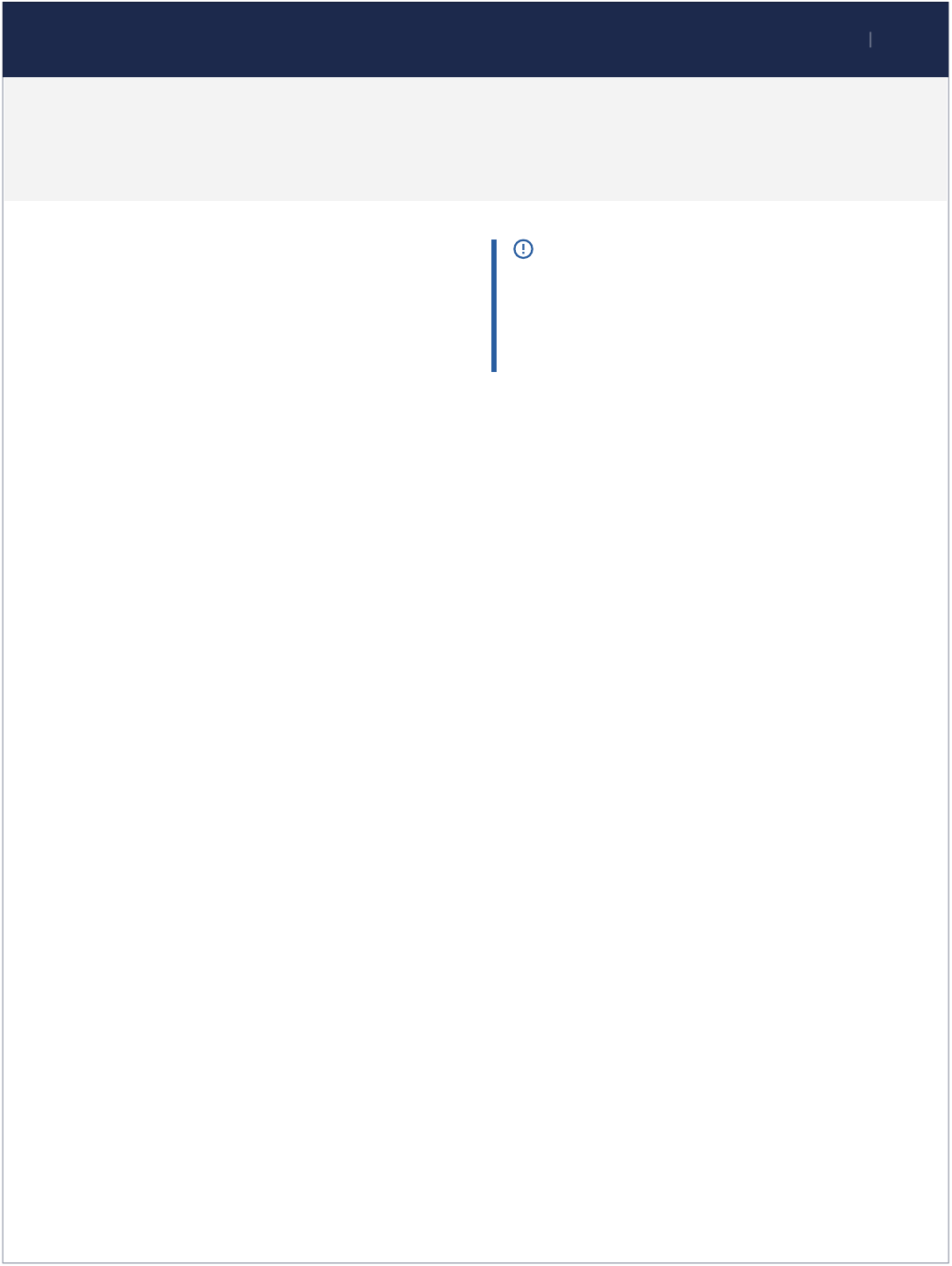
Candidate Information
GENERAL INFORMATION
38Candidate Information
RETESTING
38
OVERVIEW
Phase I Retesting
Applicants for the intelligence analyst position who
fail Phase I testing may be eligible for one retest
at least one year after their initial test date. If you
are interested in retesting for Phase I, you should
reapply online for the intelligence analyst position
after the one-year waiting period has concluded.
Phase II Retesting
Applicants for the intelligence analyst position who
fail Phase II testing may be eligible for one retest at
least one year after their initial test date. Applicants
interested in retesting for Phase II should reapply
online for the intelligence analyst position after the
one-year waiting period has concluded.
Phase III Retesting
Applicants for the intelligence analyst position who
fail Phase III testing may be eligible for one retest at
least one year after their initial test date. Applicants
interested in retesting for Phase III should reapply
online for the intelligence analyst position after the
one-year waiting period has concluded.
IMPORTANT
Applicants who fail any part of
the IASP must wait a minimum
of one year before they’re
eligible to retest.

FREQUENTLY ASKED
QUESTIONS

Candidate Information
GENERAL INFORMATION
40
FREQUENTLY ASKED QUESTIONS
Candidate Information 40
Can I apply for a specic division
(counterterrorism, cyber, etc.) or
a specic intelligence career path
(forensic accountant or surveillance
professional)?
As a threat-based, intelligence-driven organization,
the FBI hires intelligence analysts into divisions
and career paths based on FBI needs. There is no
guarantee that you will be placed in your desired role
or position. Please review vacancy announcements
on FBIJobs.gov for specic opportunities.
What can I expect in the interview?
Applicants can expect a number of competency
questions. The FBI worked with industry human
resources (HR) experts to develop a competency-
based approach to drive the HR continuum that
includes the selection and hiring process. The
panel uses behavioral interview questions and
screening tools to assess your competency in
critical areas. Candidates who indicate specialized
experience (e.g., foreign language prociency) may
be scheduled for additional testing in their eld of
expertise. During the interview, you will be
asked a number of standard screening and
competency questions.
When do I receive an offer?
The FBI will notify applicants who pass the IASP by
email. The CJO will include the position title, GS pay
grade, and salary. CJOs are contingent upon signing
the FBI mobility agreement, a favorable adjudication
in the background investigation process, budgetary
requirements, and meeting the critical skills needed
by the FBI.
Are there opportunities to travel as
an intelligence analyst?
Depending on the division and assignment, there are
numerous opportunities for travel, both domestically
and internationally. Opportunities include attending
Intelligence Community conferences; meeting with
U.S., foreign intelligence, and law enforcement
agencies; and temporary engagements at other
eld oces.
How are grade levels determined?
The FBI follows specic internal and Oce of
Personnel Management (OPM) guidelines when
determining your grade level. Your background and
experience determines the grade level(s) for which
you are qualied.
Intelligence analysts without work experience
generally enter the FBI at the GS-7 level with an
undergraduate degree and at the GS-9 level with a
graduate degree. The nal decision on your grade
level is based on the needs of the FBI and your
specic qualications for the intelligence analyst
position. Once you have accepted a CJO, the grade
level offered is the one at which you will be hired.
You cannot renegotiate your grade level after
being hired.
Are there opportunities for
advancement into management
and executive positions as an
intelligence analyst?
Throughout your career at the FBI, you can qualify
for additional training and promotion to a variety of
managerial and executive positions. Promotions to
supervisory, management, and executive positions
are available in grades GS-14, GS-15 and SL scale,

Candidate Information
GENERAL INFORMATION
41Candidate Information
FREQUENTLY ASKED QUESTIONS
41
as well as in the FBI Senior Executive Service (SES).
For more information on the government pay scale,
please visit the OPM’s Salaries and Wages page.
What happens if I do not pass the
Basic Field Training Course (BFTC)?
As a condition of employment as an intelligence
analyst, you must pass the BFTC in order to be
further considered for the intelligence analyst
position. Failure to successfully pass the BFTC may
result in dismissal.
Are there dress code or grooming
restrictions at the BFTC?
The FBI relies upon the trust and condence of the
American public to effectively perform its mission.
The FBI relies upon the trust and condence of
the American public to effectively perform its
mission. Your personal appearance as an FBI
intelligence analyst must inspire that trust and
condence. Specic dress and grooming standards
vary depending on the area of the country where
you work and your specic assignments. During
your career, you may encounter various restrictions
on your manner of dress, personal grooming, and
personal adornment based upon the business needs
of the FBI.
During new analyst training, you should expect strict
dress and grooming standards. These standards are
intended to foster safety, camaraderie, uniformity,
accountability, a sense of discipline, and to eliminate
any unnecessary distractions from the training
environment. Some restrictions/requirements* are
as follows:
• You must be clean-shaven throughout training.
• Facial piercings are not permitted. Female trainees
are authorized to wear earrings, but jewelry and
piercings must be small, simple in design, and not
present a safety hazard.
• If a tattoo is determined to be disruptive to the
learning environment, you will be required to
cover the tattoo(s) by acquiring similarly colored
long sleeves or a long-sleeved shirt to wear under
your polo.
• Hair must be of reasonable length without
exaggerated style or color.
• Men’s hair must not be longer than the bottom
of the collar, without adornments such as buns,
ponytails, or braids.
*If you need an exception from these standards due to your
religion or disability, you may request an accommodation prior to
beginning the BFTC.
Will I be paid while I am at BFTC
training?
Yes, you will be considered an FBI employee while in
training and be paid the base salary plus the locality
(cost of living adjustment) of your training location
(Washington, DC).
